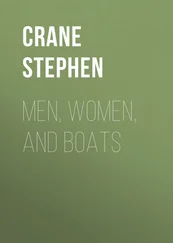He is in the future, not shedding light up to his full potential.
That’s right; in it. And a future boding ill for that past of ours we’re now in, that he has now in helpless interest or sympathy doubled himself back into, so that it might as well exist. But he’s not the type for this warp-vision; rejects the patent. Not crazy or original, a newsman who’ll carry the ball if it comes to him but has never agreed to take a view of history, no not even that it makes no sense. But he can’t get out of the way of its waste-oriented debris that, once seen, relate — and thus graduate their vectors of distance, disaster, hence perspective out of thin air like mind (it occurred to us) till this process of relation could turn (read flush) waste into flesh.
But he know that he in the future and from there hav’ thought back up a few familiar angles of the past our current present, which includes—
But wait, for while we wait for it to pass, it was a Wide Load transferring itself down an interstate in the middle of the night roughly eastward in the middle roughly of the continent. We had heard this Wide Load was mineral matter relative to us; its frequent no-show felt like it had something to hide (you ol’ Wide Load!) if only itself: as highway widths changed, so did spot reports of the overlap, until margin was our main worry, but if mineral or other substance receded, where to? No one must have seen the Wide Load at this instant we feel from how it looks through the Flying Camera keeping pace with it above the telephone lines and fields and treetops, while, long-lensed and intimately at this distance of fifty or seventy-five feet, the camera ear listens in on at least two voices somewhere there inside that Wide Load behind shingled walls and moon-pale Venetian blinds. A Wide Load being shipped interstate and at this dark hour without benefit of advance patrol — wide and immobile as a home, this unit, and hanging out over the edge of its great, low carrier trailer and out over the edge of the road as if the road’s been narrowed or a mountain had arisen widely from a moving molehill, so if a section of us other than the camera being flown beside this night cargo came the other way now, we’d have to swerve off this speeding road, foray out into farmlands of uncomfortable earth ridged and mapped with memories of soy seed and feed corn, or a brief forest of some sleeper’s saplings shadowing the far side of a dubious bridge, landbridge or any edifice to travel through. But if this other part of us, at large upon the interstate at this hour, must hold the road in the opposite direction approaching this high truck cab and its sweeping Wide Load, we would have to make a leapfrog dive up and over like the nationally screened daredevil who stands in the approaching vehicle’s path till the last instant, or alternatively we’d have to be clotheslined like a fat (as they say "a little short") fast ball wham into the middle of Indiana or Ohio, or (to skip cartilage in favor of bone) we would have to have a gap in us between our land-gear / undercarriage and the rest of us for this Wide Load to pass with its fore and aft signs through us going the other way. Unless, that is, this Wide-Load container of at least two room-type spaces — this room and a next room — prove penetrable! — as that tired voyager Columbus imagined when, having been offered by the Indians an herbal pick-me-up, he found "the illusion of ‘arriving from the east at the Indies’ more composing to his lofty spirit than any tobacco," or the thought that he was the first and therefore the beginning. For Who Was Here First proves to be a function of Where You Coming From.
But wait: elsewhere, they’ve started, apparently without us, and we want, kind of, to get over there. But we were always getting started, until of late we saw again us getting started, yes there was the word like the event itself, until we saw it wasn’t our fault, we were larger than life until life caught up and wouldn’t have if we hadn’t been larger as an incentive system. We can’t get out of the way of Mayn’s claim that he is at times in the future — because it is literal but also because it is so private as to be imaginary. He means what he said: and from that future that he at times is really in he has thought our current present up — not too consciously, though, and with help — thought it back up as if it were the past, which includes (within random wide-load boasting possibly two angry voices exploring the subject, and within the routine parameters of Mayn’s work where meteorology and arms control have met primarily since the reconnaissance scandal of the U-2 plane high as some satellite sculpture but without an orbit came crashing down through even its own surveillance upon another continent it was not meant to touch but beamed into as a bend of our own potency angles from the glass of the air into the layers and waters of our lands). . and takes in (because we don’t wait any longer). . wind and weather as a cover for the powers that be and also for a mother—
But where is she? And won’t we find her amply covered with tales the grandmother Margaret told of the Eastern Princess nee of Choor who arrived by great-circle detour doubtless upon a large bird that consumed Navajo horses under its wing? Add to this the account of the headman’s son the Navajo Prince, who once far north of his home saw a herd of bison nudged like a shadow off a cliff and felt in the stillness of that fall through the late light a waiting force somewhere in the nature of their bodies as yet not found; same Prince who even more obstinately pursued the Eastern Princess not back to Choor but along a curve of Mother Earth across a continent to where the Hermit-Inventor of New York who had given emergency counsel in the West but earlier had urged her as a girl named Margaret to go west in the first place, turned her, at last back East near home, into a sun-drenched mist to make her escape from her literally continental lover into by one account the now assembled Statue that harbored her as her disguise then compacted her cooler and (by another account) shapelier, when swift, soft, footsore steps of one tired Indian wanderer were heard climbing nearer and nearer, ascending the foreign keep of the Statue’s towering interior till they passed through her, and she passed downward like the wind, leaving him her one-time Navajo Prince to reach for himself the Statue’s eyes and look out toward the ocean he had seen only in the curves and wave-motion of his home deserts, prairies, and plateaus. But had heard of it in the Hermit-Inventor’s talk who himself was curiously never to be challenged as to his name of "Hermit-Inventor of New York" or chosen by those people or by the Eastern Princess he helped get into trouble and get out, or the Margaret she also was or even the grandson she told tales to later. In fact the Hermit garrulously sojourned upwards of half the year in those western lands to which he had sent that girl and later woman Margaret whom at more than twice her age he secretly loved, and though he lived by himself the balance of the time in New York and worked alone, he talked loudly into the night and lived among his schemes of buildings yet unbuilt, wind shadows yet to be cast, underground-wind-powered subways, floating underground buildings made of mirror — designs of weather that he hoped would make his skyline prophecy resound in all the colors of its building material and the powers of people these future buildings contained— Which we now all together have been saying include— To go on. . with no more waits… for even Margaret’s daughter Sarah, Jim’s mother, who heard but one of Margaret’s tales the one Jim did not hear, of what happened when the Navajo Prince met the East Far Eastern Princess once of Choor and her long-time betrothed and who else or other trace of future lay windowed in that turf so patient, but. .
Читать дальше












